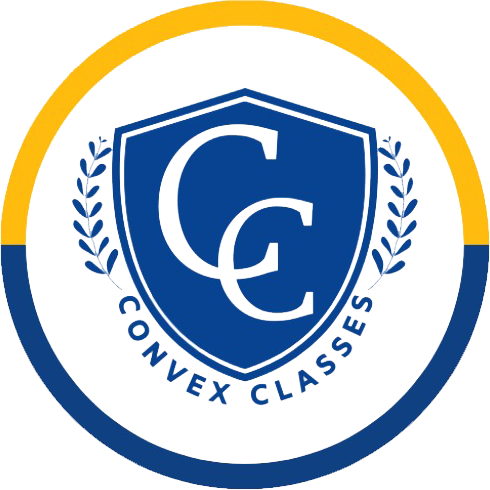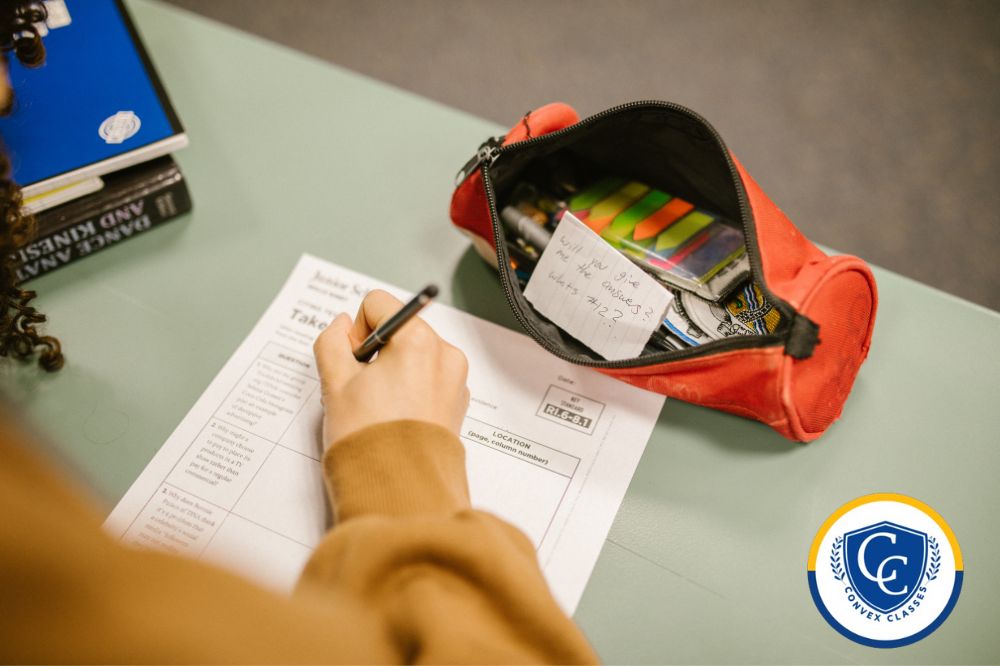While coaching provides direction, books solidify understanding. NEET’s syllabus is vast, and NCERT textbooks form the core of the exam. However, supplementary books deepen problem-solving skills and conceptual clarity. Our faculty at Convex Classes integrates these resources into classroom teaching, ensuring students maximize their potential.
Subject-Wise Best Books for NEET preparation 2025
1. Physics:
- NCERT (Class 11 & 12): The foundation for 45% of Physics questions. Master diagrams, derivations, and examples.
- Concepts of Physics by HC Verma (Vol. 1 & 2): For in-depth problem-solving and understanding tricky topics like Electrodynamics.
- DC Pandey’s Objective Physics: Excellent for MCQ practice and competitive-level questions.
- Fundamentals of Physics by Halliday, Resnick & Walker: Ideal for building a strong theoretical base.
Use NCERT for theory and HC Verma/DC Pandey for advanced practice. Convex Classes’ notes simplify complex topics like Optics and Modern Physics.
2. Chemistry
- NCERT (Class 11 & 12): 90% of direct questions come from NCERT. Focus on name reactions (Organic) and periodic trends (Inorganic).
- Physical Chemistry by OP Tandon: Clarifies numerical-heavy topics like Chemical Kinetics.
- Organic Chemistry by Morrison & Boyd: A reference gem for reaction mechanisms.
- Modern’s ABC of Chemistry: Great for revision and objective questions.
Convex Classes’ mock tests integrate NCERT-based questions with advanced problems from these books.
3. Biology
- NCERT (Class 11 & 12): The Bible for NEET Biology—memorize every line, diagram, and table.
- Objective Biology by GR Bathla: Enhances MCQ-solving speed for Genetics and Ecology.
- Trueman’s Biology (Vol. 1 & 2): Simplifies complex topics like Human Physiology.
- MTG’s Objective NCERT at Your Fingertips: For quick NCERT revision and topic-wise MCQs.
Convex Classes’ Biology experts use NCERT flowcharts and mnemonics to boost retention.
Read More NEET Coaching Fees in Jaipur
Practice Books & Mock Tests
- Previous 10 Years’ NEET Question Papers: Identify patterns and frequently asked topics.
- Arihant’s NEET Explorer: 5,000+ MCQs with detailed solutions.
- MTG’s 21 Years NEET Chapter-wise Solutions: Analyze topper strategies.
- Convex Classes’ Test Series: Simulate exam conditions with syllabus-wise mocks.
How to Use These Books Effectively
- Follow the 80:20 Rule: 80% NCERT + 20% reference books.
- Integrate with Coaching: Use Convex Classes’ notes to highlight key areas from books.
- Daily Targets: Solve 50 MCQs daily from practice books.
- Revise Weekly: Revisit NCERT highlights and class notes.
Common Mistakes to Avoid
- Overloading with Books: Stick to 1-2 books per subject.
- Ignoring Diagrams: 30% of Biology questions are diagram-based.
- Skipping Mock Tests: Regular practice improves time management.
Why Choose Convex Classes for NEET?
At Convex Classes, Jaipur, we:
- Provide NCERT-focused classroom modules and doubt sessions.
- Offer book-specific problem-solving workshops.
- Assign personalized study plans balancing books and coaching.
Read More NEET 2025 Syllabus
Final Words
The right books, combined with Convex Classes’ expert guidance, can propel your NEET rank. Prioritize NCERT, practice strategically, and leverage our test series to track progress. Ready to ace NEET? Join Convex Classes today and transform your preparation!
📚 Visit Convex Classes, Jaipur, for a free counseling session on book selection and study planning!
FAQ
Q1. Is NCERT enough for scoring 600+ in NEET?
A: NCERT is non-negotiable for Biology and Chemistry (90% direct questions). However, Physics requires supplementary books like HC Verma or DC Pandey for numerical practice. At Convex Classes, we train students to extract maximum marks from NCERT while bridging gaps with advanced resources.
Q2. Can I rely on just one book per subject?
A: For Biology, NCERT + one MCQ book (e.g., GR Bathla) suffices. For Physics and Chemistry, combine NCERT with a theory reference (e.g., OP Tandon) and an MCQ book (e.g., DC Pandey). Avoid juggling too many books—stick to 1-2 trusted ones.
Q3. How to balance NCERT and reference books?
A: Follow the 80:20 rule:
- Spend 80% of time mastering NCERT concepts, diagrams, and in-text examples.
- Use 20% for reference books to solve advanced MCQs (e.g., Electrostatics in Physics).
Convex Classes’ study planners help students allocate time effectively.
Q4. Is HC Verma necessary if I’m weak in Physics?
A: Focus on NCERT + DC Pandey’s Objective Physics first. HC Verma is ideal for students aiming for 650+ scores. If you’re struggling, join Convex Classes’ Physics workshops to simplify topics like Rotational Motion.
Q5. Which book is best for Biology diagrams?
A: NCERT textbooks have all essential diagrams (e.g., Nephron, Heart). For practice, use MTG’s NCERT at Your Fingertips or Convex Classes’ diagram booklets with labeled illustrations.
Q6. How many hours should I dedicate to book-based study daily?
A: Biology: 2-3 hours (NCERT reading + diagram practice).
- Chemistry: 1.5-2 hours (NCERT + numericals from OP Tandon).
- Physics: 2-2.5 hours (NCERT theory + 15-20 MCQs from DC Pandey).
Q7. What if I can’t understand a topic from my current book?
A: Switch to alternative resources! For example:
- Use Pradeep’s Chemistry if OP Tandon feels overwhelming.
- Attend Convex Classes’ doubt sessions for simplified explanations.




